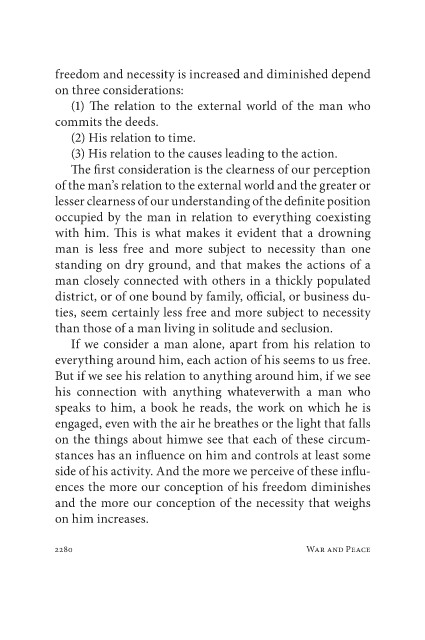Page 2280 - war-and-peace
P. 2280
freedom and necessity is increased and diminished depend
on three considerations:
(1) The relation to the external world of the man who
commits the deeds.
(2) His relation to time.
(3) His relation to the causes leading to the action.
The first consideration is the clearness of our perception
of the man’s relation to the external world and the greater or
lesser clearness of our understanding of the definite position
occupied by the man in relation to everything coexisting
with him. This is what makes it evident that a drowning
man is less free and more subject to necessity than one
standing on dry ground, and that makes the actions of a
man closely connected with others in a thickly populated
district, or of one bound by family, official, or business du-
ties, seem certainly less free and more subject to necessity
than those of a man living in solitude and seclusion.
If we consider a man alone, apart from his relation to
everything around him, each action of his seems to us free.
But if we see his relation to anything around him, if we see
his connection with anything whateverwith a man who
speaks to him, a book he reads, the work on which he is
engaged, even with the air he breathes or the light that falls
on the things about himwe see that each of these circum-
stances has an influence on him and controls at least some
side of his activity. And the more we perceive of these influ-
ences the more our conception of his freedom diminishes
and the more our conception of the necessity that weighs
on him increases.
2280 War and Peace

